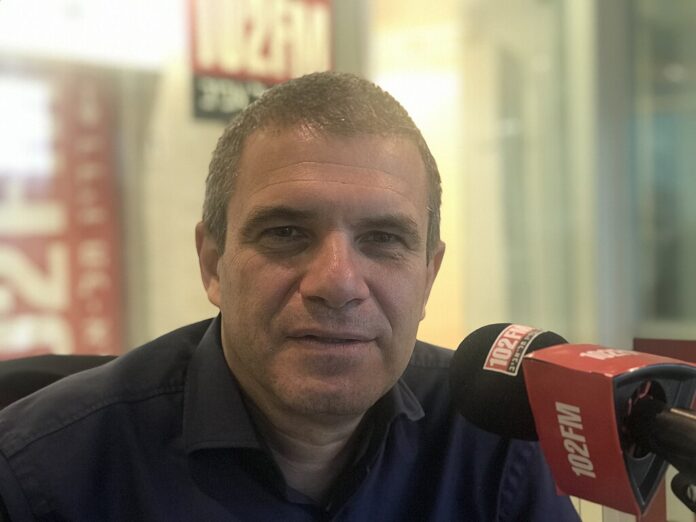Gal Hirsch, Israel’s chief negotiator, reveals during the mead conference that Hamas is executing hostages in Gaza even as international efforts to mediate continue
During the MEAD Conference held in Washington, DC, Gal Hirsch, Israel’s chief negotiator for hostages and missing persons, delivered a stark warning about the ongoing situation with Hamas. Hirsch revealed that Hamas has been executing hostages in Gaza even while international mediation efforts are underway.
Speaking with Israel Hayom’s Ariel Kahana, Hirsch emphasized the dire situation, stating, “While our negotiating team is in Doha, Hamas continues to kill hostages in Gaza. The military pressure will not stop.” This comment underscores the complex and challenging dynamics of the negotiations between Israel and Hamas.
Embed from Getty ImagesHirsch expressed frustration with what he perceives as a misleading narrative that Israel is obstructing a potential deal. He refuted claims that Israel had cancelled any agreements, asserting that the stalled negotiations are not due to Israeli actions. “Unfortunately, many have embraced the narrative pushed by Hamas — that we are the ones blocking the deal. This is false. We have never cancelled any deal that was on the table. It simply hasn’t happened,” Hirsch explained.
Hirsch outlined Hamas’ main demands, which include halting the conflict, demilitarizing Gaza, and decentralizing its leadership. He argued that these conditions are unfeasible until all hostages are released and the security situation is addressed. “Hamas is holding on to its only remaining asset — 101 hostages,” he noted. “The war could end tomorrow, and I believe Gaza could be rebuilt, and I’m sure those concerned about Gaza’s situation would support this.”
Despite the grim reality of the ongoing hostilities, Hirsch remains resolute in his mission to secure the release of the hostages. “I believe we need to act to free all the hostages, and I am pursuing every possible avenue to achieve that goal. We are waiting for the final proposal from the mediators and the United States. At the same time, our teams are working on alternative plans B, C, and D,” Hirsch said.
He also discussed the broader geopolitical context, noting that the intensity of international pressure on Israel correlates with Hamas’ willingness to negotiate. According to Hirsch, when Israel faces significant pressure from its allies and other nations, Hamas perceives it as having gained leverage and thus, feels less inclined to engage in negotiations. “There is a direct correlation between international pressure on Israel and Hamas’ desire to negotiate,” he explained. “When Israel is under pressure, Hamas feels it has achieved much without negotiating and recognizes the hostages as its most valuable asset right now.”
The MEAD Conference, which is being held for the first time this year, provides a global platform for strategic dialogue between the Middle East and the United States. Hosted in Washington, DC, the conference features senior leaders from the US, Israel, and moderate Arab countries, along with experts in security, diplomacy, and other relevant fields. The event aims to foster discussions on the evolving dynamics of the region and address pressing geopolitical issues.
Analysis:
Political:
The revelations by Gal Hirsch reflect the high-stakes nature of negotiations between Israel and Hamas. The ongoing conflict and the execution of hostages highlight the difficulties in achieving a ceasefire or resolution under current conditions. Hirsch’s comments emphasize the role of international pressure in shaping Hamas’ negotiating stance, suggesting that diplomatic efforts are significantly influenced by geopolitical dynamics and the leverage held by each party.
Social:
The humanitarian aspect of the conflict is underscored by the reports of hostages being killed. This situation brings to light the severe impact of the war on civilians and the broader implications for international humanitarian efforts. The public’s perception of the conflict, shaped by such reports, can influence international and domestic support for various policies and interventions.
Racial:
While the specific focus of Hirsch’s comments does not directly address racial issues, the broader conflict has racial and ethnic dimensions. The dynamics between Israeli and Palestinian groups reflect longstanding ethnic and national tensions that influence the conflict’s resolution. The impact on affected populations includes both the immediate human cost and the broader implications for ethnic relations in the region.
Gender:
The gendered impact of the conflict is also significant, as women and children often face disproportionate consequences during such crises. The situation of hostages and civilians highlights the gendered dimensions of the humanitarian crisis, as women and children are particularly vulnerable in conflict situations.
Economic:
The ongoing conflict and the challenges in negotiations have substantial economic implications. The cost of the war, both in terms of direct expenditures and indirect effects such as disruption of regional stability, impacts economic development in the region. The negotiation process and international pressure also play roles in shaping the economic strategies and policies of the involved parties.
